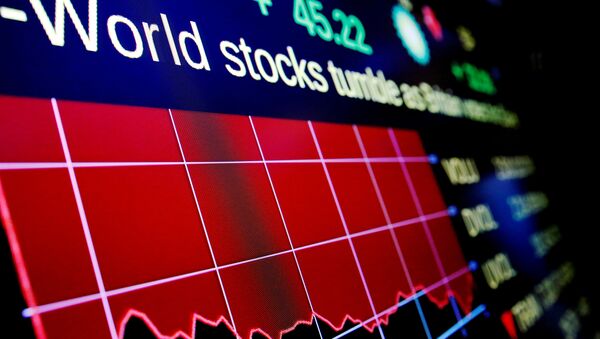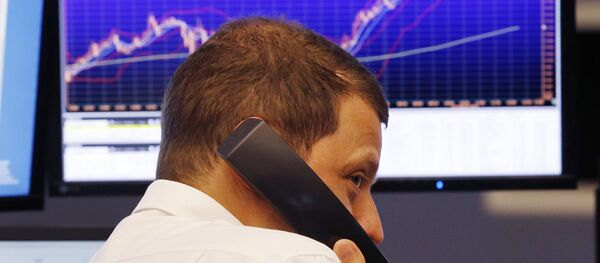The Dow Jones Industrial Average stock index endured another volatile day of trading on Tuesday — closing up 567 points — a day after shedding 1,176 in the largest single-day point drop in US history.
CAPITALISM & INSTABILITY
The plunge on Monday was broad-based, hitting every Dow business sector, which many analysts attributed to fears over increases in interest rates and the possibility of a government shutdown.
"Bottom line: capitalism is reminding us that alongside the immoral inequality it breeds, it also generates an instability of mammoth proportions and risks," economic affairs analyst and author Richard Woolf said on Tuesday. "The stock market is a gambling pit."
The stock market, he added, is not a mirror of where the economy actually stands.
"The stock market's sudden sharp downward drop last Friday and again Monday is the distorted but partly logical follow-up to the distorted panic that followed the capitalist crash of 2008," he said.
The 2008 crisis forced historically unprecedented stimulus packages entailing trillions in debt plus record low interest rates, Wolff recalled.
However, everyone knew that stock prices were and remained dependent on the immense US government boost, Wolff cautioned.
"When that boost slows or stops, well who knows how far back down the stock market's prices might fall?" he asked.
President Donald Trump’s choice as the new chair of the Federal Reserve, Jerome Powell had indicated he was ready to let interest rates start rising to try and strengthen the fiscal stability of the US government, but he therefore risked panicking still-fearful investors, Wolff pointed out.
"Now that new leadership in Washington and at the Federal Reserve are making noises about slowing or stopping the long government boost — for fear of its outsized risks," Wolff said. "We all face the risk on the other side, namely the risks of panic selling of overpriced stocks such as happened last Friday and Monday."
As a result, previous inflated stock values were being driven downward to an unnecessary degree, Wolff noted. Wolff concluded that, "we should also be reminded that human society can do better than capitalism."
OVERHEATED MARKETS
McGill University Associate Professor of Finance Sergei Sarkissian told Sputnik that the Dow Jones-rated stocks had been wrongly inflated in value and that the market was finally reacting to this.
"The most fundamental reason [for the sharp drop in the Dow] is the lack of fundamental reasons for the prolonged run-up of the index," he said.
The stock index might continue to plunge but not at the same rate and not linearly, Sarkissian advised.
"There will be less appetite for equities [and] less appetite for IPOs [Initial Public Offerings]," he said.
Sarkissian also expressed skepticism as to whether 2018 would still be a successful year for US companies and the stock market, as Trump had promised.
White House Press Secretary Sarah Sanders in a statement on Monday regarding the historic plunge in the US stock market said the president is more focused on the country’s long-term economic fundamentals — which remain strong.





